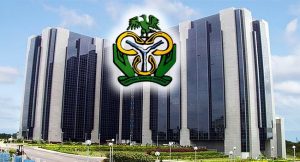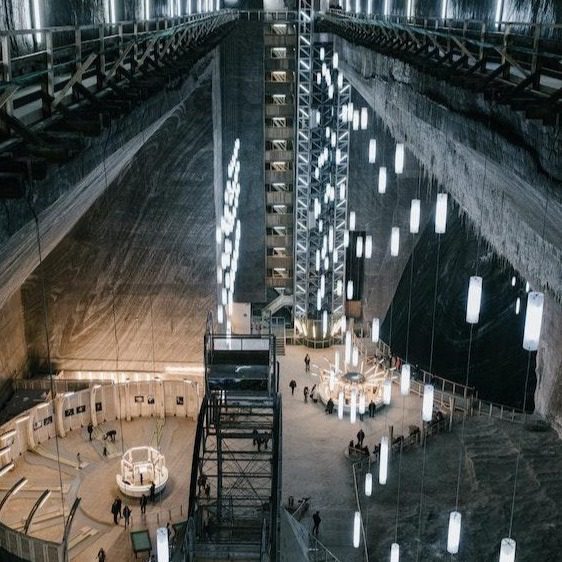DOMESTIC SHORTFALL: NNPC, MARKETERS IMPORT 633M LITRES OF FUEL
The Nigerian National Petroleum Company Limited and other marketers in the downstream oil sector imported more than 633 million litres of Premium Motor Spirit (petrol) and Automotive Gas Oil (diesel) in January 2025 despite the production of these commodities domestically. The latest industry data on the importation of PMS and AGO by these firms indicated that they brought in over 458 million litres of petrol and 174 million litres of diesel during the less than one-month duration. Although some dealers said the move was to bridge domestic fuel shortages, others argued that the $20bn Lekki-based Dangote Petroleum Refinery could meet the country’s refined petroleum products demands. The move indicates a continued reliance on imports, even as the country aims to boost domestic refining capacity and reduce dependency on imported fuel, a factor that has contributed to the devaluation of the naira. It is also in contrast to earlier public declarations by marketers to prioritise domestic supply following the inauguration of three major refineries. A document detailing the amount of fuel imported into the country obtained by our correspondent on Thursday showed that the NNPCL brought in the highest volume totalling 158,740 metric tonnes of petrol. Going by the conversion rate of 1,341 litres to one metric tonne, it, therefore, implies that the oil firm brought in about 212.87 million litres of petrol between January 1 and 29, 2025. The national oil firm also imported 62,866 MT of diesel into the country within the same period. The amount represents a total of 120.1m litres when converted to litres. The situation described by oil and gas experts as baffling and shocking, is against the backdrop of the widely publicised operational commencement of the 210,000 barrels per day Port Harcourt refinery and the 125,000 barrels per day Warri refinery by the NNPCL, making a combined capacity of 335,000 barrels per day. It raises questions about the effectiveness of these facilities in achieving self-sufficiency. On November 26, 2024, the government announced that petrol production had commenced at the Port Harcourt refinery after a long period of rehabilitation. During the unveiling of the refinery, NNPC officials conducted stakeholders around the facility where they took samples of petrol, diesel, and kerosene. It said truck loading began immediately. The Port Harcourt refinery comprises two units, with the old plant having a refining capacity of 60,000 barrels per day and the new plant 150,000bpd, both summing up to 210,000bpd. Within the space of a month, the NNPCL also announced that the Warri refinery had commenced operation after a long period of inactivity. “WRPC will focus on producing and storing critical products, including Straight Run Kerosene, Automotive Gas Oil, and heavy and light Naphtha,” a statement from the presidency stated. The commencement of refinery operations prompted stakeholders, including oil marketers to commit to halting the importation of petroleum products.

CBN POLICIES PREVENTED 42.81% INFLATION IN 2024 – CARDOSO
The Governor of the Central Bank of Nigeria, Olayemi Cardoso, has said that without the bank’s policy interventions, inflation would have surged to 42.81 per cent by December 2024. He also projected that diaspora remittances would rise to N31.79tn when fourth-quarter figures for 2024 are released. The apex bank’s boss further pledged to stick to orthodox monetary policies to tame inflation in 2025. Cardoso spoke at the 2025 Monetary Policy Forum, which brought together ministers, heads of economic agencies, and private sector players. He stated that counterfactual estimates suggest that without decisive policy interventions, inflation could have reached 42.81 per cent by December 2024. He further noted that throughout 2024, the CBN implemented bold policy measures across six Monetary Policy Committee meetings, including raising the Monetary Policy Rate by 875 basis points to 27.50 per cent, increasing the Cash Reserve Ratio for Other Depository Corporations by 1,750 basis points to 50.00 per cent, and adjusting the asymmetric corridor around the MPR. Cardoso said, “Counterfactual estimates suggest that without these decisive policy interventions, inflation could have reached 42.81 per cent by December 2024. “Throughout 2024, the bank implemented several bold policy measures across six MPC meetings, including raising the Monetary Policy Rate by a cumulative 875 basis points to 27.50 per cent, increasing the Cash Reserve Ratio of Other Depository Corporations by 1,750 basis points to 50.00 per cent, and adjusting the asymmetric corridor around the MPR.”Cardoso highlighted that the CBN implemented critical foreign exchange reforms to enhance market efficiency. The unification of multiple exchange rate windows contributed to a 79.4 per cent rise in remittances via International Money Transfer Operators to $4.18bn in the first three quarters of 2024, up from $2.33bn in the same period in 2023. Other major FX-related interventions included clearing a $7bn FX backlog, which restored market confidence and improved FX liquidity, lifting restrictions on 41 items previously banned from access to the official FX market since 2015, and introducing new minimum capital requirements for banks, effective March 2026, to enhance resilience and global competitiveness in the sector.
OUTSTANDING $7BN FX CLEARED, SAYS CARDOSO
Governor of the Central Bank of Nigeria, Olayemi Cardoso, announced on Wednesday that the Federal Government has cleared the outstanding $7bn foreign exchange backlog to various firms following a successful verification exercise by forensic auditors. Cardoso disclosed this at the launch of Nigeria’s Regulatory Policy Framework organised by the Presidential Enabling Business Environment Council. The event, which was tagged the regulators’ forum, took place at the State House Conference Hall in Abuja. Addressing the audience, Cardoso explained that the bank was optimistic the clearance of the $7bn backlog would ease the bottlenecks associated with the repatriation of funds by businesses, multinationals, and foreign investors. According to the CBN governor, the outstanding forex clearance took far longer than they earlier anticipated. He said, “In addressing foreign exchange liquidity constraint, decisive steps have been taken to clear outstanding $7bn forex backlog to ensure that businesses, multinationals, corporations, and foreign investors can repatriate funds seamlessly ‘This initiative has restored confidence among market participants and reinforced Nigeria’s commitment to honouring financial obligations in a timely and efficient manner. Talking about the $7bn backlog, we have cleared the verified claims. “We also looked at the unverified ones, and I believe that we are at the final stages of separating what qualifies as fully verified, and we will surely be paying out those money that have been verified by the forensic auditors. It is unfortunate, to be honest, that it has taken so long. “But the truth of the matter is that there were a lot of practices that went on that really should never have happened in the first place. That said, we are going to ensure that we do what we need to do to strengthen our market and create a better trust in what you investors naturally desire and deserve.” Earlier in her address, PEBEC Director-General, Princess Zahrah Audu explained that one of the key indicators for the commission was that the majority of the companies expected the government to provide them with a stable and predictable policy environment. Audu also shared the President’s sentiment that it was the same aim they aimed to achieve with the policy framework. She said, “We are going to help you become a part of the formation of this policy because one of the things we actively encourage our MDAs to do is to have a sectoral stakeholder engagement in smaller groups. Now there is a more thorough process to go through before a policy is passed into law. “It is very important to note that this administration will do things differently. We are constantly asking for your input because we don’t think we know it all. When you look at business from a government perspective, it is very different from looking at it from a private sector view.
EQUITY MARKET REVERSES LOSS, INVESTORS GAIN N364BN
The Nigerian Stock Exchange witnessed a market reversal on Tuesday as equity investors gained N364bn following an improvement in the All-Share Index, which surged by 0.57 per cent to close at 104,549.74 points. The market capitalisation now stands at N64.5tn. This marked a 1.67 per cent gain for the week, along with a 1.58 per cent year-to-date gain. Among the top gainers, Aradel Holdings led the pack, appreciating by 10 per cent to end at N594.00 per share, followed by Chellarams (+9.98 per cent), Stanbic IBTC Holdings (+9.92 per cent), and University Press (+9.64 per cent). On the other hand, Caverton Offshore Support Group led the losers with a 10 per cent drop, closing at N2.07 per share, while McNichols (-10 per cent), Thomas Wyatt Nigeria (-9.8 per cent), and Veritas Kapital Assurance (-9.79 per cent) followed closely. Despite these positive movements, Universal Insurance recorded the highest volume of 33.6m shares, followed by Fidelity Bank with 31.9m shares and FCMB Group with 23.1m shares, contributing to the day’s notable trading activity. Notably, the Oil & Gas Index outperformed, rising by 3.34 per cent, while the Banking Index rose by 0.75 per cent, reflecting positive investor sentiment in the sector. The Consumer Goods Index also gained by 0.81 per cent.

HEAVY SANCTIONS FOR FX CODE BREACHES, CBN WARNS BANKS
The Central Bank of Nigeria Governor, Olayemi Cardoso, has issued a stern warning to financial institutions, emphasising that violations of the newly launched Nigeria Foreign Exchange Code will attract severe sanctions. Speaking during the launch of the FX Code at the CBN headquarters in Abuja on Tuesday, Cardoso highlighted the significance of the framework in restoring trust and transparency in the country’s foreign exchange market. The FX Code represents a comprehensive and enforceable framework designed to address systemic abuse and unethical practices that have plagued the FX market in the past. According to the governor, these practices severely undermined market integrity, created privileges for a select few, and eroded public trust. “Let me reiterate: the era of opaque practices is over,” Cardoso declared. “We will not hesitate to act against any institution or individual that undermines the integrity of our financial markets,” he said. Cardoso disclosed that the forensic verification of $7bn in FX backlogs, a process that has taken over 12 months, is nearing completion. He noted that the verification exercise revealed multiple unethical and illegal practices that the CBN is determined to prevent in the future. He assured stakeholders that final settlements for the backlogs will soon be processed, marking a critical step in addressing past distortions in the FX market. The apex bank governor said, “We must not forget where we are coming from. The era of multiple exchange rates, which created privileges for a select few at the expense of most Nigerians, severely undermined market integrity. “As an example, the $7bn of FX backlogs that has taken over 12 months to verify has led to the discovery of multiple unethical and even illegal practices that we should not be proud of as a nation. The forensic verification process is now near complete, and final settlements will be processed accordingly.”

- CAPITALDIGEST MARKET REVIEW, 09/02/2026February 9, 2026
- CAPITALDIGEST DAILYNEWS, 09/02/2026February 9, 2026
- CAPITALDIGEST MARKET REVIEW, 02/02/2026February 2, 2026
Enter your email address for receiving valuable newsletters.
- CAPITALDIGEST MARKET REVIEW, 09/02/2026U.S. DOLLAR REBOUND TO BE CUT SHORT BY RATE CUT BETS, DOUBTS OVER FED INDEPENDENCE:...February 9, 2026
- CAPITALDIGEST DAILYNEWS, 09/02/2026TAXES, FUEL HIKE SLOW BUSINESS GROWTH IN JANUARY – NESG REPORT The report showed that...February 9, 2026
- CAPITALDIGEST MARKET REVIEW, 02/02/2026DOLLAR WEAKENS ACROSS THE BOARD AS YEN CLIMBS ON INTERVENTION RISK The dollar moved sharply...February 2, 2026












